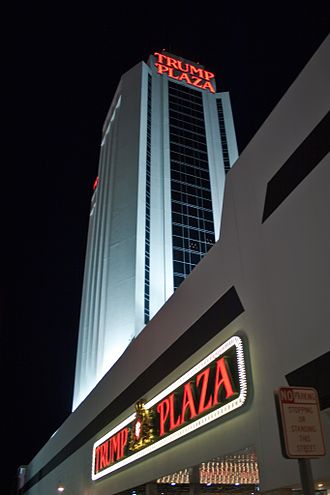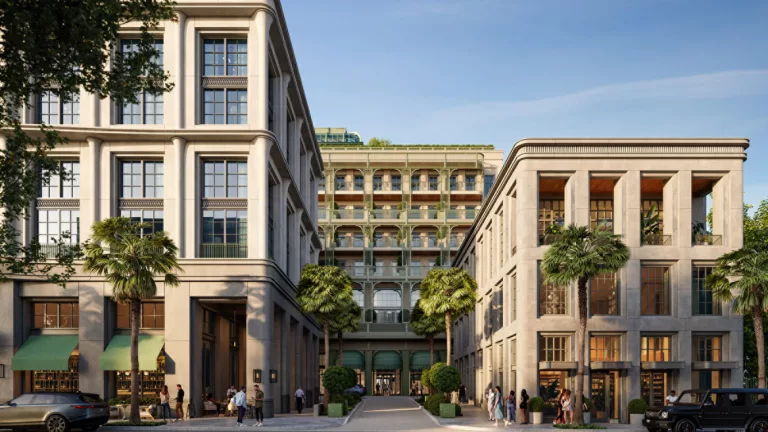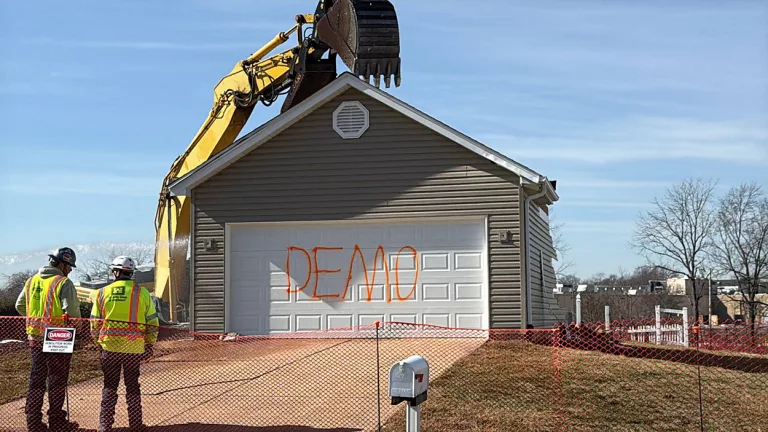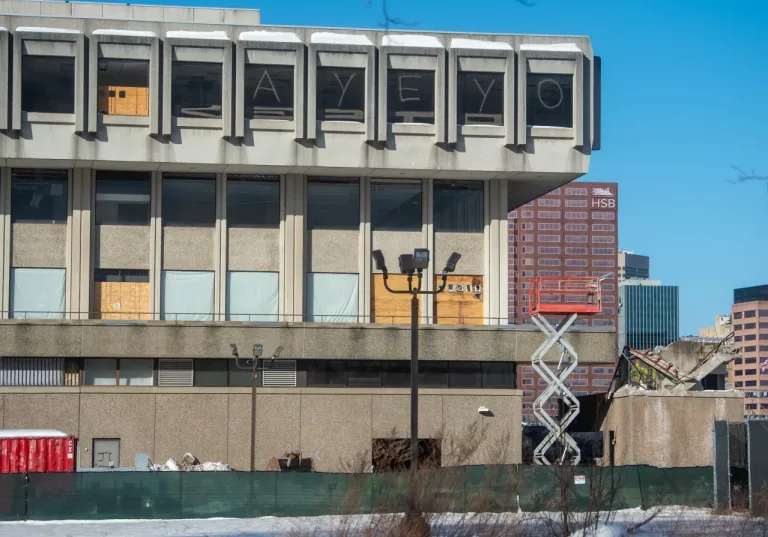
For years it’s been an obtrusive blight, emptied after years of underperformance—a crumbling facade evincing the rot within, a vacant and doomed shell representing an era that has long passed its prime.
I speak, of course, of Trump Plaza. Soon, this beleaguered development in Atlantic City, New Jersey, will fall. Demolition is currently underway, and the building’s shell is slated for eventual implosion.
Opened as a 39-story casino and hotel in 1984 at the heart of the Atlantic City Boardwalk, the $210 million building was codeveloped by Donald Trump and owned by a variety of companies under his name. After several bankruptcies, Trump disassociated himself from his failing casino business, Trump Entertainment Resorts, and by 2014 all that remained of him at Trump Plaza was his name. Despite an expansion in the early 1990s that spread the complex to a second tower, it struggled to compete with larger resorts nearby. In 2012, the casino’s full-year gambling winnings were reported to be the equivalent of what one of its competitors made in just two months. Unable to bounce back, Trump Plaza closed in 2014, the same year three other casinos in the city shuttered, adding up to an estimated 10,000 lost jobs for the city. It has been standing empty ever since.
Demolition in progress, September 30, 2020. [Photo: Mark Makela/Getty Images]
Tearing down Trump Plaza has been a major goal of Atlantic City mayor Marty Small Sr. since being selected to fill the seat of the previous mayor, who resigned after pleading guilty to wire fraud. “It was a dead spot in the Atlantic City skyline,” Small says. “And more importantly, if a northwest wind blew, it was a danger for everyone in that vicinity. We’ve had tons of concrete fall from that building, metal falling near Boardwalk hall, concrete falling on the boardwalk.”
He goes on: “That’s not the image that the great city of Atlantic City wants to portray.”
Trump’s legacy in the city goes beyond Trump Plaza. His name was on two other casinos in the city, and through mounting debts and a series of bankruptcies he led these businesses to slowly decay, shedding thousands of local jobs in the process. Through some creative accounting that shifted his debt to shareholders, Trump was able to transfer ownership of his debt-ridden casinos to a publicly traded company; they were later sold. One, the Trump Marina, became a Golden Nugget casino. The other, Trump Taj Mahal, was sold for just 4% of its original $1.2 billion cost and is now a Hard Rock Hotel and Casino.
As for Trump Plaza: Demolition is now underway. Crews have been working over the past few months to clear out the inside of the building and are tearing away parts of its exterior. Ultimately, Trump Plaza will be imploded, a common and quick method of demolishing high-rise buildings.
Demolition plans were submitted to the city over the summer by its owner, a subsidiary company of the billionaire Carl Icahn, which has owned Trump Plaza since it acquired Trump Entertainment Resorts in bankruptcy in 2016.
Small, who’s now running for his first full term and encouraging voters to choose the Democratic ticket, says the demolition is currently scheduled for January 29. “I wanted it done before that, I wanted the debris cleared before that, but safety is paramount when it comes to demolition,” he says. Though this will be just days after the presidential inauguration, Small says there’s no hidden connection. “This has nothing to do with elections,” he says. “Listen, we didn’t need a tutorial on who Donald Trump is. We lived it here in Atlantic City. So we’re just looking forward to getting that building down and getting something in its place.”
He’s hopeful that the former casino’s prime location will be redeveloped into something better, perhaps a mixed-use project or family-oriented entertainment. “There’s not many times in any city where oceanfront center city becomes available, and that’s what we have here,” Small says.
The building is now wrapped with netting to prevent debris from falling outside of the demolition site. The company leading the internal demolition did not respond to an interview request, but it is common for such high-rise towers to have their interiors slowly ripped out before being lined with explosives and detonated, their gutted floors systematically collapsing in on themselves and falling like a house of cards.
“It will be the final chapter of Donald Trump in Atlantic City,” Small says.




